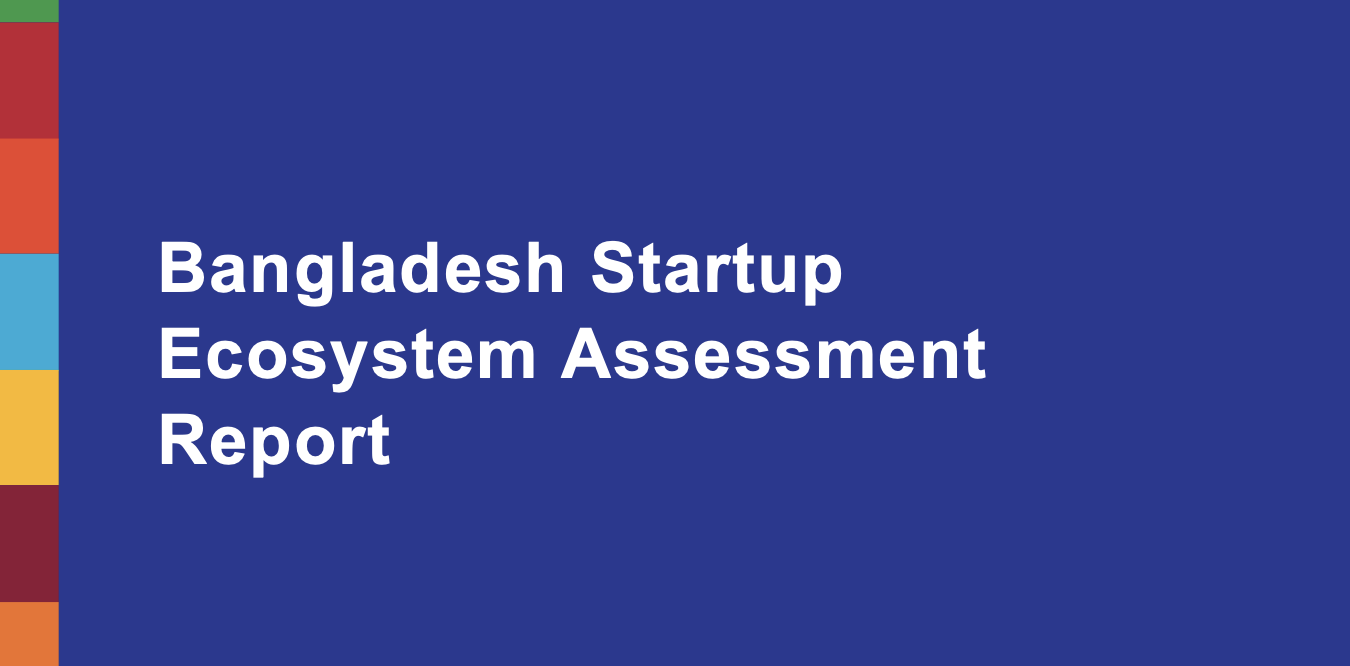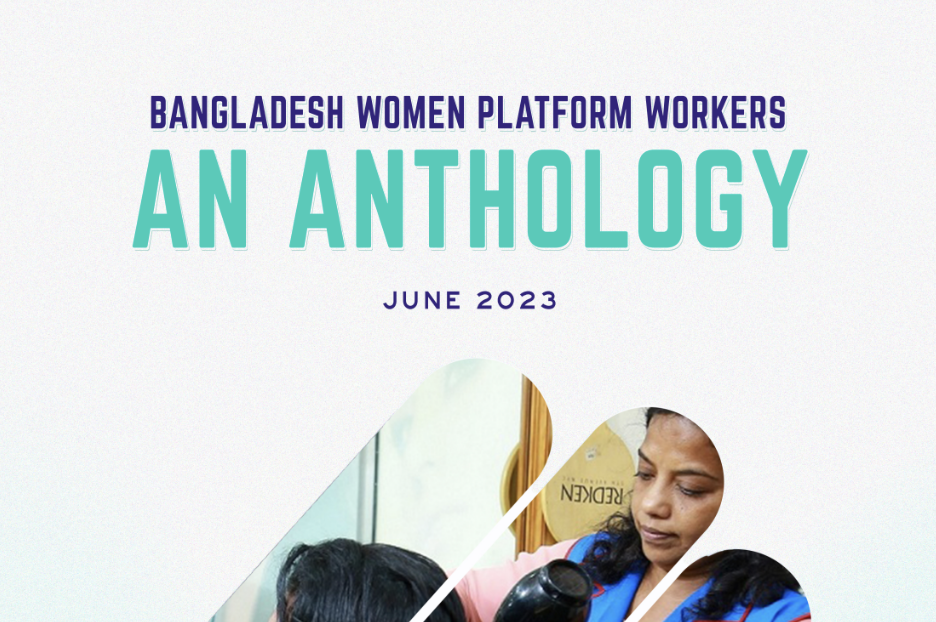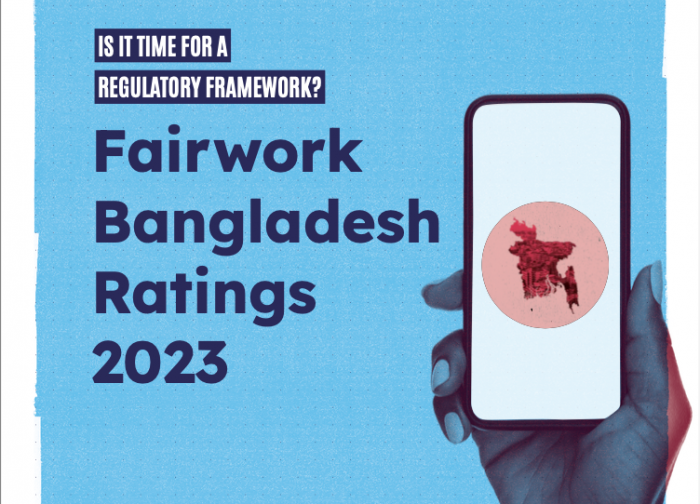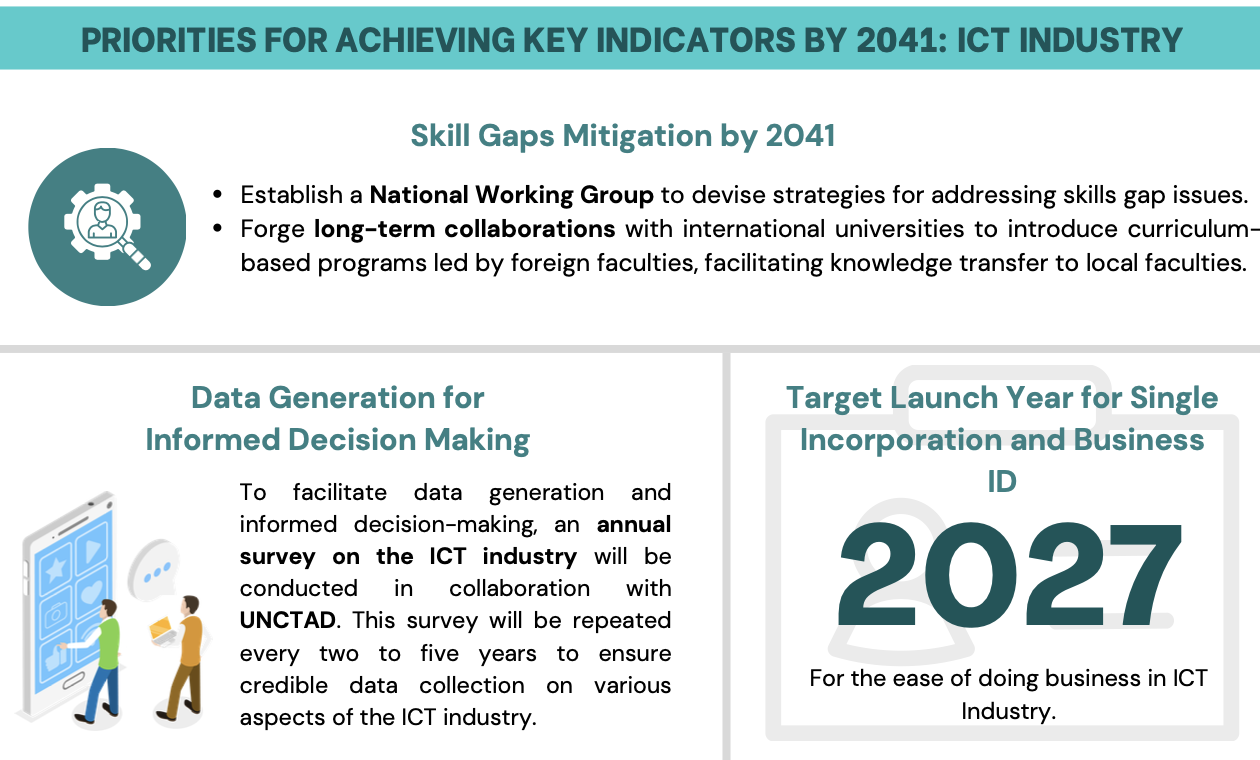This Startup Ecosystem Assessment Report (SEAR) walks through the current condition and the prospective scenario of the startup ecosystem of Bangladesh. The report generates actionable insights for stakeholders throughout this growing sector of the economy. The report presents an overview of the macroeconomic and development context of the country and the technological advancement of the nation in the past decade and uses this context to situate its assessment of the current startup ecosystem. 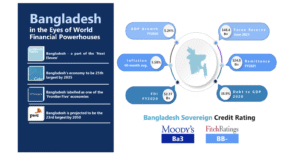
Project timeline: May 2022
Partners:
- Bangladesh High-tech Park Authority of ICT Division of Ministry of Post, Telecommunications and ICT
- Bangladesh Startup Consortium
- DataSense
- LightCastle Partners
Project objective:
This report presents an up-to-date analysis of Bangladesh’s readiness to cultivate a robust startup ecosystem. Drawing upon insights gathered from a series of workshops involving local and global stakeholders, the SEAR provides a comprehensive picture of the current landscape.
A key focus of this report is the increasing importance of applying a gender lens to assess the country’s investment and innovation environment. This approach aims to provide actionable information to enhance the contribution of women across all sectors of the economy.
The compilation of this report has been supported by multiple organizations and individuals, including the Bangladesh Hi-Tech Park Authority (BHTPA). The expert views gathered contribute to realistic and grounded policy recommendations.
This report offers interested parties a detailed examination of the current state of Bangladesh’s startup ecosystem. It is intended to facilitate the further development of a startup policy framework by the Government of Bangladesh (GoB), geared towards building a strong innovative ecosystem. The report will also be of interest to private enterprises and investors.
Project outcome:
This report includes extensive desk research into the existing startup ecosystem and the examination of numerous case studies, outlining Bangladesh’s current position and future potential in building a thriving startup ecosystem. The project outcome highlights several key drivers propelling this growth: a strong economy with a young, tech-savvy population and high mobile and internet penetration; a demographic bulge equipped with increasingly relevant skillsets, including a growing number of IT graduates and returning Non-Resident Bangladeshis; and an inflection point in the startup ecosystem, marked by significant investments, active angel networks, and the emergence of accelerators. The crucial role of the government in fostering this environment through policies like Digital Bangladesh, the iDEA grant platform, and the development of technology parks is also underscored.
Based on these drivers, the report provides a comprehensive set of recommendations aimed at further strengthening the ecosystem. These recommendations are categorized into:
- Pipeline Building: Emphasizing promotion of entrepreneurship, establishing more incubators and accelerators, and integrating gender and inclusivity in funding.
- Creating a Startup-friendly Investment Regime: Focusing on evaluating investment flexibility, strengthening private venture funds through public-private cooperation, and introducing creative financing mechanisms.
- Making Regulations Further Startup-Friendly: Addressing the Alternative Investment Rule, recognizing fund managers’ needs, revisiting the Foreign Exchange Regulation Act, facilitating share buybacks, and allowing Employee Stock Options (ESOP).
- Facilitating Growth by Startup-Specific Tax Incentives: Proposing tax options like exempt dividends, tax-breaks on sold assets, and special treatment for management fees.
- Improvement in Doing Business Environment: Aiming to enhance Bangladesh’s global image through improved rankings in the Global Startup Ecosystem Index and Ease of Doing Business, and simplifying administrative processes.
- Skills and Networking: Highlighting the importance of improving foundational entrepreneurial skills, launching educational programs, and mobilizing Non-Resident Bangladeshis as angel investors and mentors.
- Gender Lens Investing: Advocating for special accelerator and incubation programs, exclusive investment programs for women entrepreneurs, and integrating gender aspects at every stage of investing.
- Data for Progress Monitoring: Recommending government investment in platforms and standards for gathering quality data on startups and their growth.
These expert views and recommendations will serve as a foundational resource for policy recommendations and will be further disseminated in a forthcoming Bangladesh Startup Ecosystem White Paper from ESCAP.
Locations the project served: Nationwide, encompassing all key stakeholders within Bangladesh’s startup ecosystem. This included extensive engagement with government bodies, regulatory authorities, investors, Venture Capital (VC) firms, accelerators, incubators, educational institutions, development partners, and the startups themselves.
Impact:
- Enhanced Policy and Regulatory Framework: The report aims to facilitate the development of a more cohesive and startup-friendly policy framework by addressing fragmentation within ministries, streamlining company registration and foreign currency exchange, and providing a formal guideline for startups.
- Strengthened Human Capital and Skills: The project seeks to improve entrepreneurship-specific skills among youth, better integrate entrepreneurial education into curricula, address skill-demand mismatches, and enhance the quality of technical education.
- Increased and Diversified Investment: It endeavors to amplify investment allocation for startups, attract more global funds by improving investment flexibility, strengthen private venture funds through public-private cooperation, and introduce creative financing mechanisms.
- Improved Investment-Friendly Regulations: The recommendations aim to make regulations more attractive to investors by reducing lock-in periods, recognizing fund managers’ needs, clarifying foreign exchange rules, facilitating share buybacks, and allowing Employee Stock Options.
- Favorable Tax Environment for Startups: The project proposes tax incentives like exempt dividends, tax breaks on sold assets, reduced tax rates on management fees, and tax rebates on investments in impact startups.
- Enhanced Global Image and Ease of Doing Business: The report’s insights aim to improve Bangladesh’s rankings in the Global Startup Ecosystem Index and Ease of Doing Business, thereby boosting global branding and attracting international investors.
- Developed Skills Capacity and Networking: The project seeks to build stronger entrepreneurial capabilities through global standard training, mentorship, and leadership programs, and to better integrate Non-Resident Bangladeshis (NRBs) as investors and mentors.
- Promoted Gender Lens Investing: The report emphasizes establishing special programs and investment funds for women entrepreneurs, encouraging private sector involvement, and integrating gender aspects at every stage of investing, along with recognizing companies mainstreaming GLI.
- Improved Data for Progress Monitoring: The project highlights the necessity of investing in platforms and standards for gathering quality data on startups and key growth parameters to facilitate informed decision-making and ecosystem development.
Report Link: Summary report:

